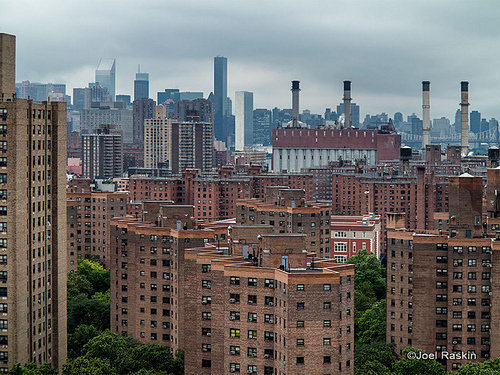NEW YORK, N.Y.—The heating problems that plagued New York City’s public housing this winter might have been mitigated if management had listened more

to its workers, says an official of the union that represents them.
The New York City Housing Authority estimated in early February that 80% of its more than 400,000 residents had gone without heat or hot water at least once this winter. Some reported going without heat for as long as two weeks straight, particularly in the January “bomb cyclone” cold wave.
Kevin Norman, housing director of Teamsters Local 237, sees one obvious reason for the problems: “The place is significantly understaffed. They’ve heard it from us and from the residents.” According to Norman, five years ago, the authority had 370 heating plant technicians covering its 326 developments and 2,462 buildings. Attrition has reduced that number by almost one-third, he says, to 256—and that includes 12 workers added in January.
After decades of cuts in funding from the federal, state, and city governments, he says, NYCHA’s financial problems are “more real than folks know.” But he believes the authority would run much more efficiently if it was more willing to listen to “the ones who do the work.”
For example, Norman says, NYCHA claims it can’t hire workers who haven’t passed the civil-service exam. But he contends it could hire provisional workers who have gone through Local 237’s training program—which prepares them for the test—and then ask the Department of Citywide Administrative Services to schedule an exam for them.
“We had a list of 40-some-odd people that we had trained,” he says.
In 2015, he adds, the authority asked the union to suspend its training program so it could be revised to include more instruction on how to complete logbooks and reports. After one meeting to discuss that, he says, “they never contacted us again.”
Instead, last summer NYCHA requested proposals for privatizing the heating plants in 69 developments. Local 237 argued that even with the $6,500-a-year raise union technicians get for learning specialized skills, it could still get the job done for half to two-thirds the cost of a private contractor.
On Staten Island, he says, workers have been able to keep a boiler more than 60 years old working because, with the same crew covering the borough’s 10 developments, they know its idiosyncrasies and maintenance schedule well.
“They need to look at ways to make the job easier for the people who are actually doing it,” he says. Instead of ordaining procedures they learned in management school, they should think in terms of “what it takes to get the job done.”
About one-third of Local 237’s 24,000 members—who range from hospital stockroom workers to school crossing guards—live in city public housing, he adds.
Norman also challenges a central dogma of management in the age of austerity: “There’s no such thing as ‘doing more with less,’” he avers. That’s an “inspirational” slogan, he explains, but to keep heating systems functioning properly, you need enough workers to monitor boilers constantly and inspect pipes continually.



